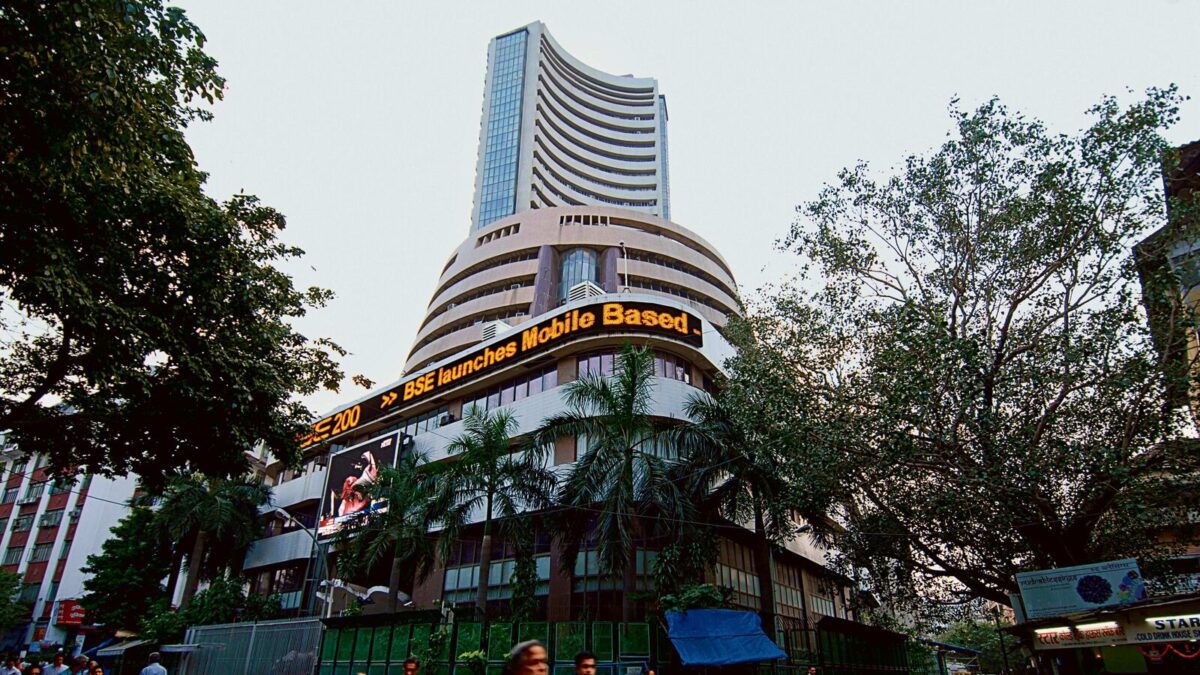Market capitalisation touches ₹1 trillion: The BSE (Bombay Stock Exchange) joined an elite club of stocks that have a market capitalisation of ₹1 trillion or more. The market capitalisation (market cap) of Asia’s largest and oldest stock exchange touched the ₹1-trillion mark for the first time today after the stock price hit a new high of ₹7,422.50 on the National Stock Exchange (NSE) in Wednesday’s intra-day trade.
BSE share price today
Shares of BSE Limited hit a new high of ₹7,422.50, as they gained 1.5 per cent on the NSE in Wednesday’s intra-day trade, extending its past two days up move. In the past three trading days, the stock price of the exchange and data platform company has surged 13 per cent after the company fixed May 23, 2025 as the record date for a 2:1 bonus issue.
In the past one month, the BSE has outperformed the market by gaining 31 per cent, as compared to the 6 per cent rise in the Nifty 50. The stock has zoomed 102 per cent from its March month low of ₹3,682. It has skyrocketed 251 per cent from its 52-week low price of ₹2,115 touched on July 23, 2024, NSE data shows.
A sharp rally in the stock price of the company has seen BSE’s market cap touch ₹100,483 crore (₹1 trillion) in intra-day trade today, for the first time.
At 09:29 AM, BSE’s market cap stood at ₹99,163 crore on the NSE, exchange data shows. The stock was trading 0.45 per cent higher at ₹7,325, as compared to 0.5 per cent rise in the Nifty 50.
BSE trades ex-dividend for ₹23 per share
BSE’s board recommended a total final dividend of ₹23 per share for its shareholders while announcing the Q4 results on May 6. The company has fixed May 14 as the record date for determining the shareholder eligibility for the same. The total dividend of ₹23 consists of a special dividend of ₹5 per share to commemorate 150 years of BSE, along with a regular dividend of ₹18 per share.
BSE bonus issue record date
BSE has fixed May 23, 2025, as the record date for determining the eligibility of shareholders for issuance of bonus shares. On May 9, 2025, the shareholders of the company approved the issue of bonus shares in the ratio of 2:1, i.e. 2 (Two) new fully paid-up equity shares of ₹2 each for every 1 (One) existing fully paid-up equity share of the company.
Since March 28, the market price of India’s oldest stock exchange, BSE has appreciated by 47 per cent after its rival–NSE–deferred its plan to change the day of expiring of its contracts from Thursday to Monday. This comes after the release of a consultation paper from market regulator Securities and Exchange Board of India (Sebi).
On March 30, the BSE’s board decided to issue bonus shares in a 2:1 ratio, i.e. two new shares for every fully paid-up share held by the shareholders on record date.
BSE bonus history
This will be the second time the company will consider a bonus issue after March 2022, according to the corporate action data compiled by NSE.
The board of directors of BSE approved bonus issue on February 8, 2022, in the ratio of 2:1 and fixed the record date for the same as March 22, 2022, for the purpose of determining the names of shareholders who shall be entitled for allotment of bonus equity shares in the ratio of 2 new fully paid-up equity shares of ₹2 each for every 1 fully paid-up equity share held by the shareholders of the company.
Should investors book profit in BSE shares?
Looking forward, while there could be some moderation of macro tailwinds in the near term, the management said the company is focused on growing its businesses and remains optimistic about their medium-term outlook. Looking at the rest of 2025 and beyond, the management said the company will continue to leverage its unique Sensex brand, expand connectivity suite with market participants and enhance channels, platforms and products, ensuring that it remains resilient at all times, while being capable of capturing the many exciting opportunities ahead.
Future & Option (F&O) regulations have been beneficial for BSE with respect to a rise in non-expiry trading activity, leading to improvement in premium turnover. Decline in notional turnover boosted the profitability with lower regulatory costs. Increased member participation, colocation monetisation, and sustained momentum in premium turnover will be key growth drivers for BSE, according to analysts at Motilal Oswal Financial Services. The brokerage firm has a ‘Buy’ rating on BSE with a target price of ₹7,600 per share.
About BSE
The Bombay Stock Exchange (BSE) is Asia’s largest and oldest stock exchange, serving as a platform for trading various financial instruments like stocks, currencies, and derivatives. Comprising some of the most actively traded and liquid stocks, BSE Sensex is the benchmark index in the country. Significantly impacting the Indian economy, it is a barometer of India’s financial performance.
BSE SME is India’s largest SME platform, with over 480 companies listed and it continues to grow at a steady pace. BSE StAR MF is India’s largest online mutual fund platform, which processed over 420mn transactions and added 27.1mn new SIPs in FY24. BSE has a diversified revenue stream comprising transaction charges, listing services, treasury income, index services, data feed and others.
Top-notch SEBI registered research analyst
Best SEBI registered Intraday tips provider
Telegram | Facebook | Instagram
Call: +91 9624421555 / +91 9624461555



